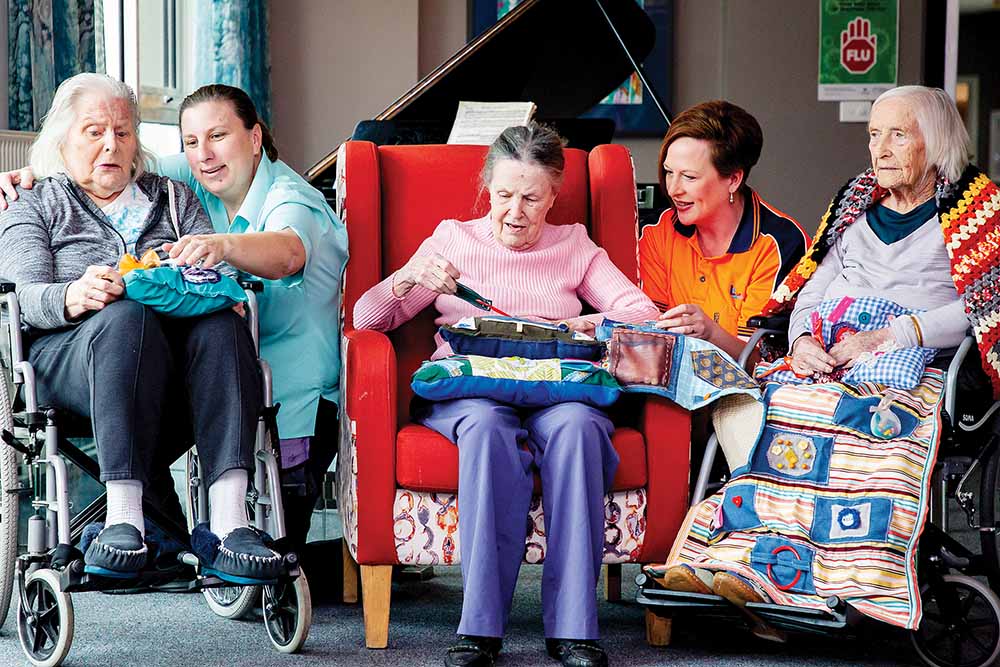
IMPROVING the well-being of some of the most vulnerable people in the community is a cause worth pursuing.
So, a project to relieve the boredom and cognitive decline of people living with dementia and other disabilities deserves special attention.
Advance Community College project supervisor Sam Knowles and her team are producing stimulation materials for elderly residents designed to be both soothing and help them retain their motor skills.
The items include sensory blankets, pillows and other “fiddle” items, with a variety of stimulatory elements, such as different colours and textures, and tactile elements, such as beads, ribbons, zips and buttons.
The features stimulate the residents’ senses and have positive and beneficial effects on their quality of life and general well-being.
“Distraction therapy is a good way to reduce levels of anxiety,” experienced aged care worker Ms Knowles said. “The stimulation of sensory activity, in a safe environment, is known to induce positive emotions.
“The items offer the residents a chance to practise their fine motor skills, such as tying ribbons, connecting hooks and eyes, and running zips up and down.
Other items are beads in a bag to move with the fingers and to hear jangle as they move, changing colours to catch the eye, feeling different textures, and popping toys or characters in and out of a pocket to amuse, surprise or delight.”
Somerville residential care home SomerCare is the first to receive the completed items. Shelley Ford, from its leisure and well-being unit, described the donated sensory fiddle blankets as “adorable” and said they were “much loved by the residents”. She said residents were “really engaged when using them and they provided good value”.
A footy blanket may be their next creation. SomerCare is discussing the idea of the blanket with Ms Knowles to maintain residents’ long-held interests and arouse pleasant memories of their favourite team.
Team members have benefitted from the project, too, with Ms Knowles saying she felt a sense of achievement in being part of the project. “It has certainly helped me gain self-confidence in my abilities and tremendous satisfaction from donating to the community, with such positive feedback,” she said.
The project being run through the Hastings Community Contribution Project 2019, received a federal government Work for the Dole grant.



